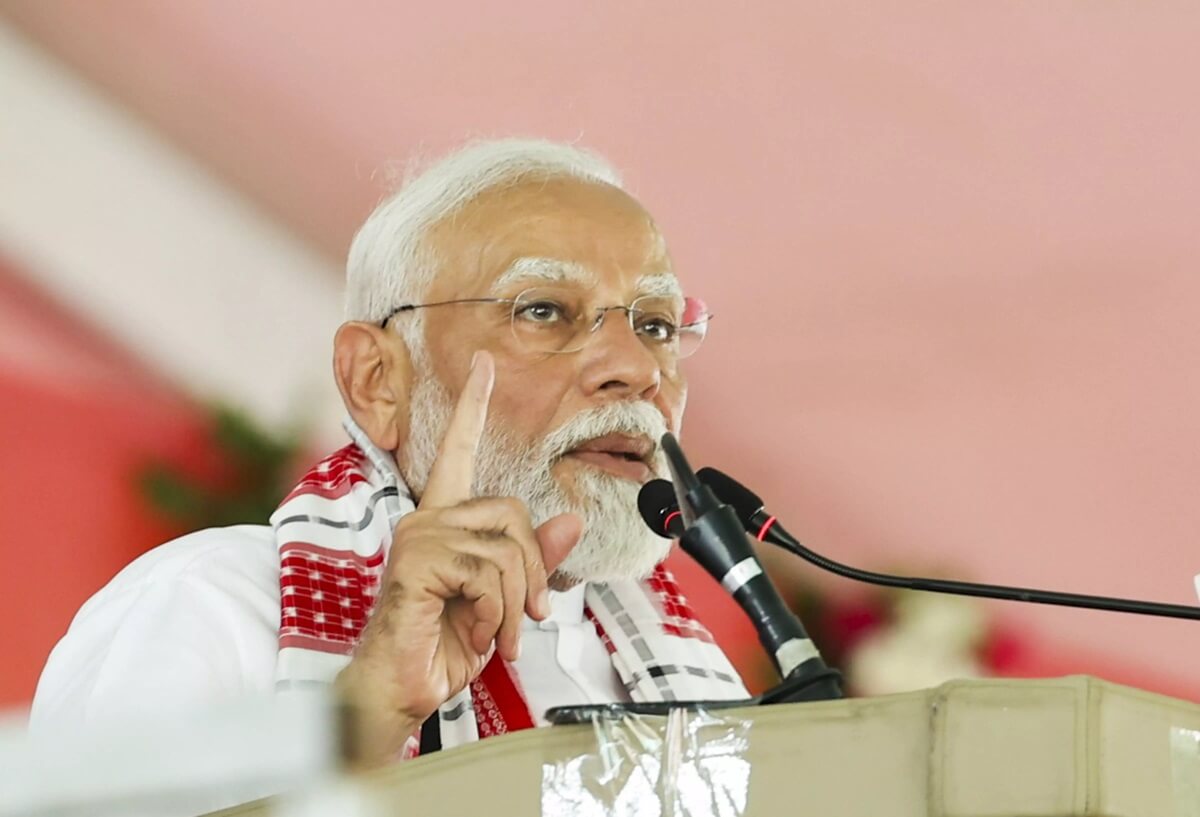Populism or Elitism?
Ranjona Banerji | 15 May 2024
Is it fair to write a column about other columnists? Let’s see. For the past 12 years or is it 13, India’s best-known and most-read columnists have informed the nation that anyone who does not admire the Narendra Modi phenomenon has abandoned their critical faculties, their sense of how vast sections of India feel and does not understand the world that they live in. Anyone who questioned Mr Modi’s credentials, his past statements, his rampant bigotry and his role in the 2002 riots when he was chief minister of Gujarat was wasting their time concentrating on minor details. This new Modi was going to bring progress to India, create jobs, end corruption and so much more.
Now, 13 years later, Narendra Modi himself has campaigned for a third term as prime minister on the following issues: if the Congress Party comes to power, it will take away everyone’s wealth and give it to Muslims, it will enter your homes and take away your family’s gold and the mangalsutras — a sign of being wed — from the necks of women, if you own two buffaloes it will take away one, it will decide on the members of the Indian cricket team depending on their religion…
Not a single line about his own amazing achievements. The jobs and wealth created. The new India, full of progress and development. The end of corruption. The glory of India, long suppressed by all politicians but him, now revealed to the world. Interestingly, although his trademark rampant Islamophobia has not ended, he does not appear to be puffed with pride about his own recent inauguration of the Ram Temple at Ayodhya. Modi has been associated with the Ram Janmabhoomi movement for decades, from the organisation of BJP founder L.K. Advani’sRathYatra to polarise India in the 1990s to the demolition of the Babri Masjid in 1992 and onwards. But oddly, what one might assume would be his crowning glory, has somehow taken a backseat to his obsession with the Congress Party.
His latest claim that Rahul Gandhi has stopped mentioning crony capitalism and Modi’s dependence on two of India’s top industrialists because they have been sending tempo-loads of cash to Rahul Gandhi, is the funniest and most telling of all. He has actually named two of his top financiers here. He has accused them openly of supporting his biggest political rival. And he has accused them of breaking Indian law.
In some places, this would be called a meltdown by the Prime Minister of India. But in our own version of reality, how long before some much-admired columnist and commentator spins Modi’s accusations as a masterstroke of blaming the Opposition for what he himself does? If indeed Modi represents some sections of Indian society more effectively than anyone else, it appears that he speaks for the less savoury elements. Those who are filled with bile and hatred for others, those who revel in divisive disharmony, those who cherish violence and those who are bent low by their massive insecurity about their worth. These are the people who appear to admire Modi and his rhetoric the most. If indeed his words and actions are “masterstrokes” as we’ve consistently been told for over a decade, then it is a masterstroke in the minds of some of our finest to whip up the worst in humanity.
And perhaps it is, would you argue? If the only purpose of a politician is to win elections, then for our social experts, no rules must or can apply. (It is another matter that no rules apply to the ruling party, according to our state agencies.) To consistently promote incompetence or the fomenting of hatred because of popularity amongst a certain section of the populace is to bow down to become the first step towards fascism. To deliberately promote rank populism over responsibility displays the cheapest form of cowardice in the face of bigotry, hatred and the road to dictatorship.
And so very, very sadly this is what our commentariat have done. Even today, as Modi’s comments appear to become more and more bizarre, they decide to pick on some unnecessary comments by a remote Congress functionary and somehow equate them with the campaign speeches of the Prime Minister. Ably helped by a culpable media, they attempt to control the narrative and steer it towards Modi’s greatness.
The tragedy is that rather than be honest to themselves and their worthy opinions, they are as likely to run after any other power centre should it emerge. That is what thrills them: to be around and thus “assess” the trappings of power. For this privilege, they are happy to compromise everything else.
You may argue that they were not wrong. That someone like Modi is very popular. The problem is that Modi is not a filmstar, whose work sells on his popularity. As a politician he is a supplicant, begging from the people. As Prime Minister he is a constitutional entity with responsibilities. A failure to uphold those responsibilities cannot be excused by popularity. No matter how beautiful your words or compelling you think your argument is.
What will actually happen on June 4, when the results of these elections are declared, who knows? I certainly don’t. If you know, then perhaps you are one of those who revels in the breaking of the system of secret ballot and Constitutional agencies whose job it is to secure and defend our democracy.
And if you do not hold those in power accountable, then you are of course a stooge. No matter how popular a mind you might consider yourself.
The writer is a senior journalist who writes on media affairs, politics and social trends.
This article was originally published on Deccan Chronicle.
Views in this article are author’s own and do not necessarily reflect CGS policy.
